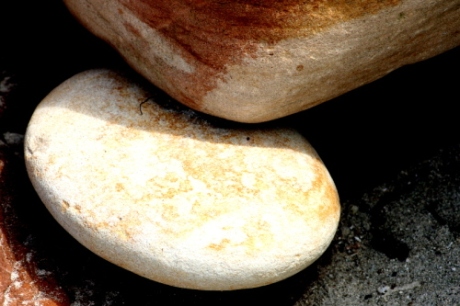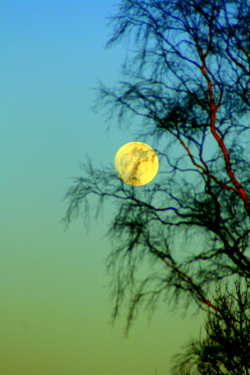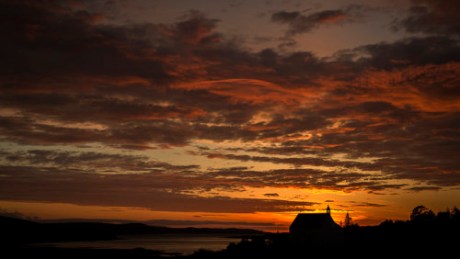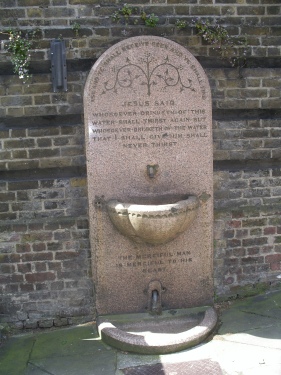5.
An experience in my teens
From the mid 1990s (when I was in my fifties) doubts began to accumulate in my mind as to the truth of materialism, that is, that matter and material energy is all that there is. Looking back at my life as a whole, there were a number of personal experiences I had which increased my doubts.
In my late teens I was on a ship anchored off Lisbon in the Tagus river in Portugal when I had a rather strange experience. We were lifting anchor and it was getting dark and the mate asked two of the crew to get a portable light from the number 1 hold. We were carrying a cargo of iron ore. When going down the ladder in the dark one of the men, who was from Glasgow, fell on to the iron ore and hurt himself quite badly. He was taken to hospital in Lisbon. The strange thing was that that morning as I was walking in the alley near his cabin I had a sudden ominous feeling about the person who was to have the accident.
The challenge
I often wondered afterwards, how could there be any knowledge of the future if everything is naturalistic. It didn’t fit in with the materialist hypothesis. Not much else happened in my twenties and thirties to threaten my belief in naturalism. Although one rather odd thing did happen in my early twenties when I was in lodgings in Inverness and working as a prison officer. I was standing in the lounge in the lodgings and thinking, okay God if you exist prove it to me. I looked down and there on an ashtray lying on the table was the word ‘Challenge’. It must have referred to a brand of whisky! I never imagined at the time that fifty years later the challenge would be met in an unbelievable way.
A weird coincidence
It was in the mid 1980s that something very strange happened. I had been thinking of the symbol of the ‘way’ for a long time and had wanted to write a poem on this theme. The way, or the tao, of course, has a long history as a symbol of a spiritual path in Eastern religions and in Christianity. It’s what Jung would call an archetype, something deep in the psyche which can have various consequences in the world of outer experience. I was deeply into Jung at the time.
Often the first lines of a poem would come to me and I would have to write them down or I would lose the poem. On the road from Inverness to Mull I stopped in Fort William for a bite to eat and as I waited for my food I started writing the verses ‘Mending the Road’. The ‘road’ of course is a metaphor for the ‘way’ or the ‘tao’, and for me at the time the ‘way’, or life itself, seemed meaningless. It was ‘the road that goes nowhere’. I had written two thirds of the poem, but how would it finish? I didn’t know:

(The cover of A’ Caradh an Rathaid)
Mending the road
With a yellow oilskin on / I mend the road, / and fill the holes / with tar and gravel. / I remember the tar / how the bubbles would break / in the heat of youth. / Now we / mend the road / that goes nowhere.// A man came who said: / Put it there, my friend – / the road breaks beneath our feet. / The heart’s tar hardens, / no sun to swell it. / It descends and climbs – / there is no ascent/salvation – / the only one for remedy. // A bird on the twig / singing by itself: little boy, little boy, / don’t worry, / don’t worry, / there is no road in the sky, / why do you mend / the road that goes nowhere? // The road is so devious / mobile, tortuous, / hidden from view, / the endless vein-webs / in the body of creation, / one moment so whole / and the next in smithereens.
In the restaurant, I had got as far as the word ‘smithereens’, and decided to finish the verses later. I went for a walk along the street and heard music coming from a bar. There I had a brief conversation with a middle-aged man. I had never met him in my life. To my astonishment he was a road worker who drove a lorry with aggregate for the road works outside Fort William. Another archetype for Jung was the wise old man. It was as if I had met the realization of the archetype in the flesh, and the archetype of the way was also at work. Later I finished the poem as follows:
Don’t believe, don’t believe / that it goes nowhere / (said the old man of the road); / everything will ripen / and the heart will be satisfied / with a symbol, / with the arteries’ warm blood / and everything will arrive in its place / as in the beginning. For now, fill the holes / and go forward: / everyone must travel/pass on – / and be mending.
This incident, this meaningful coincidence, had a powerful effect on me. It made me wonder if there might be meaning to life after all.
Another coincidence
In the late 1980s a similar event happened while I was living in Mull. The family were away and I was on my own in the house. I very seldom went to church but this Saturday night in bed a verse came strongly to my mind and I had the urge to go to church in the morning. The verse was ‘I am the way, the truth and the life’. When I went to church that was the very verse the man preached on. I was amazed.
I sat in the back seat and opened the Bible for the singing. It was the Free Church and there’s no notice to say which psalm they’re going to sing. The Bible opened at psalm 25. Seconds later the preacher announced the verses to be sung. It was psalm 25; they included verses 4-5: ‘Shew me thy ways, o Lord; / thy paths, o teach thou me: / And do thou lead me in the truth, / therein my teacher be: / For thou art God that dost / to me salvation send, / And I upon thee all the day / expecting do attend.
Was there something, someone, trying to tell me something? I was certainly being softened up from being a hard-nosed sceptic to a feeling that there might be something ‘beyond the veil’ after all.






